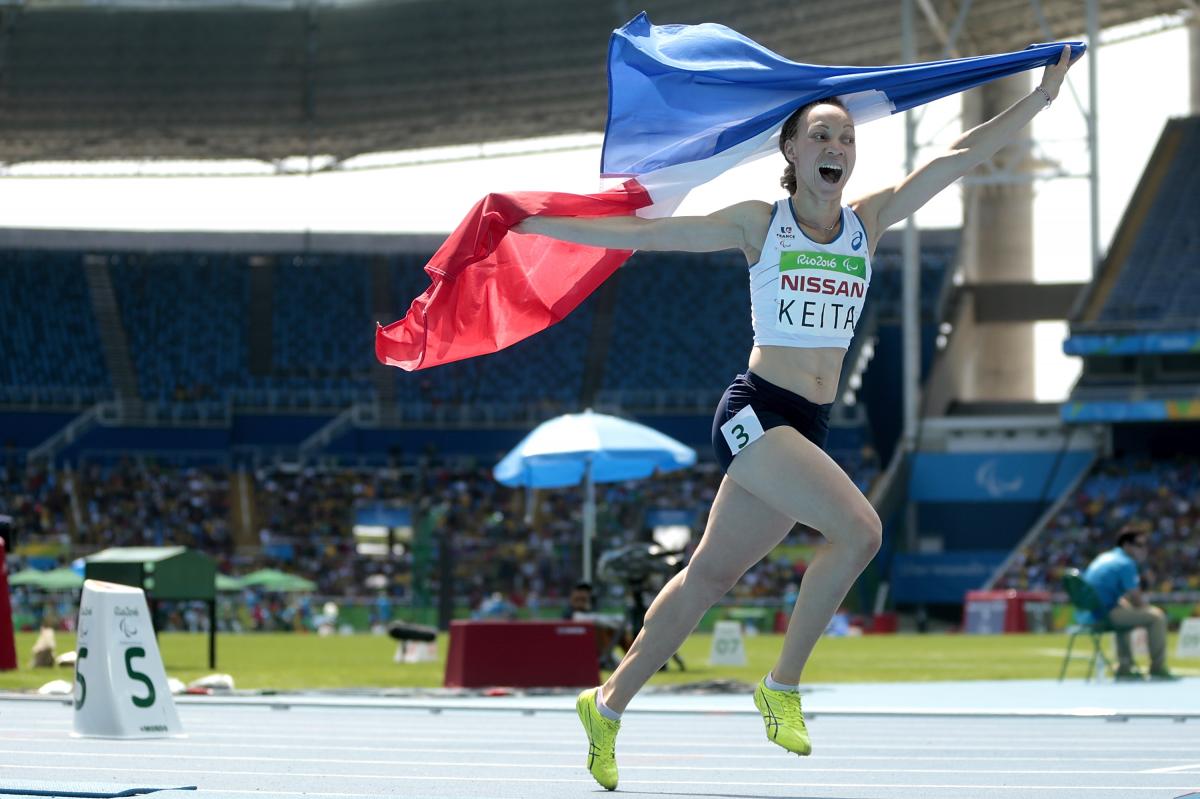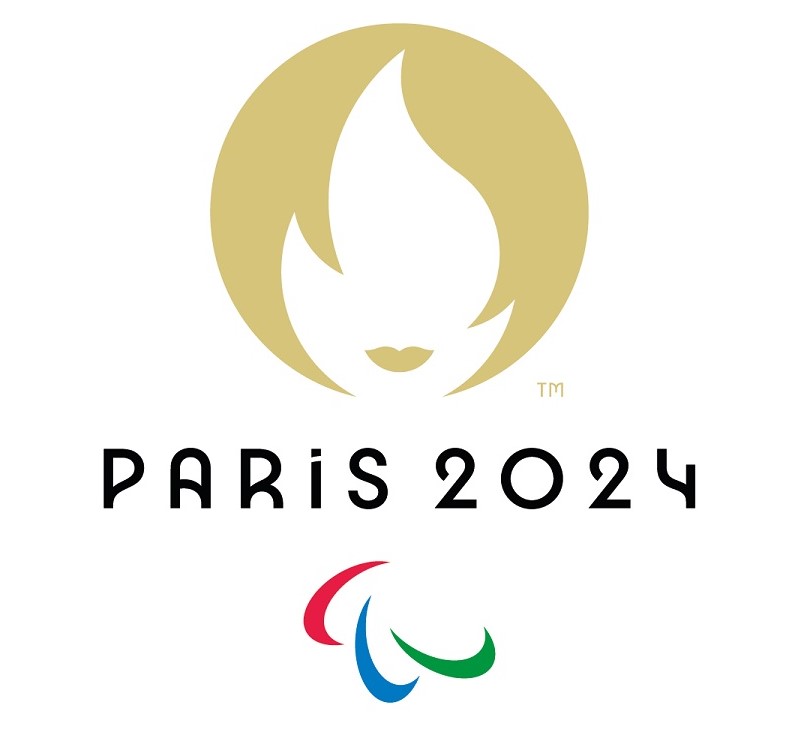Paris 2024: Meet France’s home hero Nantenin Keita
Nantenin Keita will carry the host country’s flag at the Paris 2024 Opening Ceremony 28 Aug 2024
Going into the Paris 2024 Paralympic Games, French athlete Nantenin Keita thinks she knows what to expect. But it was very different at her first Paralympic Games, back in Beijing in 2008.
“Everyone talked about the Games, and said, ‘you’ll see, the Games are mad, it’s just magnificent’." she recalled. "And I didn’t understand, because I told myself, ‘hang on, we’ll be in a different country, I’ve done that; a 400m race, I’ve done that; I know my opponents, so that’s okay; we’ll stay and eat in a hotel, we’ll be together’. I didn’t see what would change, really.
“And then when I arrived at the Games and I got to the Paralympic Village, and I saw that it wasn’t just athletics, all the sports were there, that there would be an Opening Ceremony, that the flame would be lit, then I said, ‘ah right, I understand the difference’. I was discovering things, I was right in the middle of it. It was a bit like Disneyland."
Keita, however, understood the key point about the Paralympic Games – the event is the biggest competition in the world for Para sport, and being Paralympic champion shows that you are the best in the world at your event.
A complete career
Keita, who was born with albinism, discovered athletics through a competition for people with the vision impairment organised annually by the Union Nationale du Sport Scolaire (National Union for Academic Sports) in France.
“There are two things I love most about my sport," she said. "I love being part of a human adventure which we share with the world – whether that’s the coach, whether it’s my teammates in training, whether it’s my competitors – I like that a lot. The other thing I like is that everyone can find a discipline which interests them, whether it’s jumping, running or throwing."
In Beijing, Keita won bronze in the 400m T13, and silver in the 200m. At the London 2012 Paralympic Games she added bronze in the 100m, and at the Rio 2016 Paralympic Games, Keita became Paralympic champion in the 400m T13. She was fourth at Tokyo 2020.
But the Paris 2024 Paralympics will always carry a special meaning for her. She will be competing at her fifth Games with the support of the home crowd. On top of that, she will carry the host country’s flag at the Opening Ceremony on 28 August.
“I have been a medallist, I have been an athlete, and I have discovered every part of the sport," Keita said. "Now I will carry the flag for France. So my career is really complete. It’s the first Paralympics in France, so I will always be the first one [to carry the flag].”
Journey to the Games
Keita says her journey has not always been easy.
“To get to this level, I’ve had to overcome many obstacles," she explained. "The fact that I’m muscularly fragile and get injured often, every time I have to come back despite being injured and despite time being so short to train and perform.
“Some people don’t believe in you, they say ‘oh, you’ve done one Paralympics, two Paralympics, you haven’t won gold’, and say, ‘you’ve tried twice, that’s enough’.
“You have to keep in your head the fact you have your objectives and you want to meet them, and say to yourself after everything you’ll make it. You have to keep your goals in mind even when someone says stop."
Looking after the small things is particularly important when it comes to aiming to be a champion, Keita believes.
“In every final there are several athletes with the ability to become champion on that particular day. So it depends on the details, on the person who takes the right decisions at the right time in the race, perhaps the person who believes a little more that they can win that medal, perhaps the person who dares to risks to try and win the gold medal. The person who knows themselves well, who also knows their rivals and can adjust their tactics for the strengths and weaknesses of their opponents, can win the day."
A home hero at Paris 2024
Keita’s route to her fifth Paralympic Games in her home country has been fairly smooth, with lots of training. Now, she is excited about competing in Paris.
“What I’m expecting is a beautiful spectacle, with amazing performances,” she said. “I want to see, at the end of Paris, that people have had fun, that the human adventure has been good, and that people say ‘you had to be at Paris 2024, I was at Paris 2024, and Paris 2024 was sick’.”
Keita credits Para athletics with giving her a huge amount of confidence in her own abilities, and showed that that her disability can be positive.
“When I was young people often said ‘you can’t do that, you can’t do this’. In fact Para sport showed me what I had the capacity to do, rather than what I wasn’t able to do.
"In terms of confidence and self-esteem that really helped me, and it allowed me to meet extraordinary people that I wouldn’t have met if I hadn’t done Para sport."
There is another key outcome from Paris which Keita is hoping for.
“I’d love that Paris 2024 really enhances the visibility of the Paralympic Games, the visibility of people with disabilities, and that it can encourage people to take part in sport," she added.
“Not everyone will be a Paralympic champion, but if thanks to Paris 2024, thanks to everything that’s been done up to Paris 2024, we start to encourage people to take part in sport – whatever it is, and whether it’s for leisure or to be an elite athlete – I think that is a win.”











